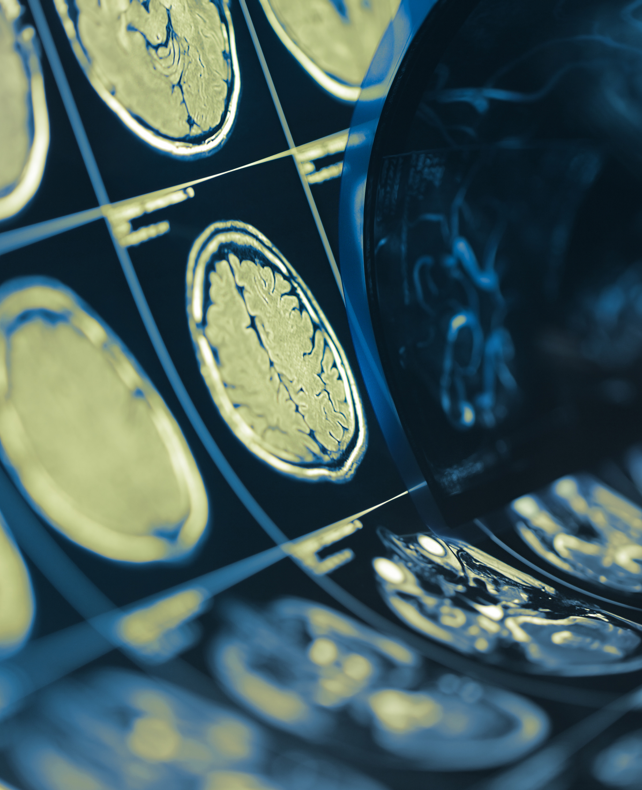Refer a Patient
iScope is currently accepting new patients. A referral from your primary care physician or specialist is required for consultations covered by your provincial plan. If you require rehabilitation services a referral is not required.
A concussion is a type of traumatic brain injury (TBI) that occurs when the brain receives a quick jolt or impact, causing it to move back and forth inside the skull. This movement can cause brief alterations in brain function. Concussions are most commonly caused by blows to the head, but they can also occur as a result of intense shaking or powerful motions that cause the brain to crash with the skull.
Sports injuries, falls, motor vehicle accidents, physical attacks, and occupational accidents are all common causes of concussions. It is vital to highlight that a concussion can occur without any obvious injuries or loss of consciousness.
If you suspect a concussion, get medical assistance immediately, especially if the symptoms are severe or worsen over time. A medical practitioner will assess your symptoms, conduct a neurological examination, and may prescribe additional tests such as a CT scan or MRI to rule out more serious brain injuries.

A concussion is a minor traumatic brain injury (TBI) that happens when the brain receives a quick jolt or impact. A blow to the head is the most common cause, although it can also result from intense shaking or powerful movements that cause the brain to move back and forth inside the skull. Concussions can occur in a variety of settings, including sports, falls, car accidents, physical assaults, or any other incident that has a severe effect on the head or body.
Rest and allowing the brain to heal are the major treatments for a concussion. This includes both physical and cognitive rest, as well as restricting activities that can aggravate symptoms, such as reading, using electronic devices, or participating in sports or intense activities. The length of rest and rehabilitation depends on the severity of the concussion as well as individual characteristics. It is critical to gradually reintroduce activities under the supervision of a healthcare practitioner in order to monitor symptoms and ensure a safe recovery.
Repeat concussions or returning to physical activity too soon can lead to more severe or long-term problems, such as post-concussion syndrome or second-impact syndrome.
Each concussion is distinct, and recovery duration varies. While the majority of people recover completely within a few weeks to months, some people may endure long-term symptoms known as post-concussion syndrome.
Concussion symptoms might emerge shortly after the injury or hours or even days afterwards. Concussion signs and symptoms vary from person to person, however some typical markers include:
It is critical to get medical assistance if you believe you or someone else has suffered a concussion. A healthcare practitioner will analyze the symptoms, perform a neurological examination, and may arrange imaging tests, such as a CT scan or MRI, to look for structural damage in the brain.
If you feel you have a concussion, you should seek medical assistance right once. A healthcare expert can assess your symptoms and provide appropriate treatment and management to aid in your recovery.
In the interim, it’s critical to relax and avoid activities that could result in another injury. This includes avoiding physical exertion and avoiding tasks that demand concentration, such as reading, using a computer or phone, and watching television.
As a healthcare expert may advise, it is also necessary to control symptoms such as headache, nausea, and dizziness using over-the-counter medication. However, it is critical to avoid taking the medicine without first talking with a healthcare expert, especially if you have any underlying medical concerns.
Most people recover completely from a concussion with good management and rest. It’s critical to stick to the treatment plan advised by your doctor and avoid returning to physical activity until your symptoms have completely resolved.
If you suspect you or someone else has suffered a concussion, you must seek medical attention immediately. However, there are some circumstances in which obtaining medical attention is critical. These are some examples:
If you suspect a concussion or see any troubling symptoms, seek medical attention as soon as possible. A healthcare provider can assess symptoms and recommend appropriate treatment and management to help patients recover.
Iscope Toronto is located in Suite 17 at 951 Wilson Ave.
Monday: 9:00am – 5:00pm
Tuesday: 9:00am – 5:00pm
Wednesday: 9:00am – 5:00pm
Thursday: 9:00am – 5:00pm
Friday: 9:00am – 5:00pm
iScope is currently accepting new patients. A referral from your primary care physician or specialist is required for consultations covered by your provincial plan. If you require rehabilitation services a referral is not required.
Suite 301 – 1111 Lonsdale Ave North Vancouver, BC V7M 2H4
P: 1-888-550-5508
F: 604-900-7676
Suite 200 – 8837 201 St Langley, BC V2Y 0C8
P: 1-888-550-5508
F: 604-900-7676
Suite 301 – 9639 137A St Surrey, BC V3V 0C6
P: 604-900-7007
F: 604-900-7676
Suite 500 – 89 Queensway West Mississauga, ON L5B 2V2
P: 1-888-550-5508
F: 416-900-7006
© Copyright 2023 Iscope Concussion and Pain Clinics. All Rights Reserved